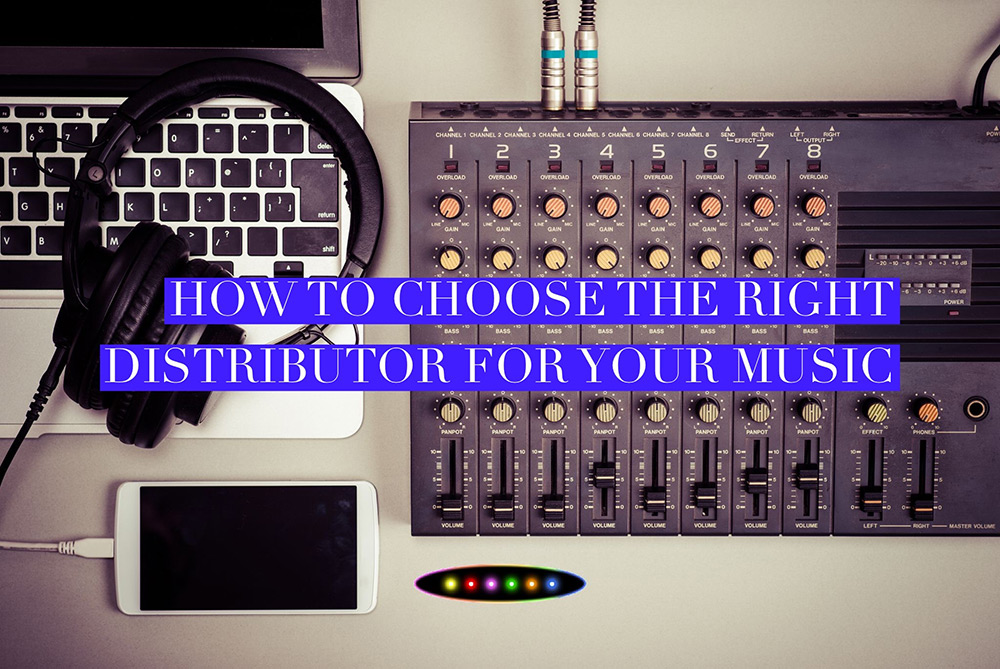
How To Choose The Right Distributor For Your Music
Traditionally, distribution was always a risky and expensive aspect in the music business both for labels and artists. Flash forward to modern times and its never ever been easier to distribute your music. We’re in an exciting era when it comes to digital distribution and it creates some very exciting options for both artists and labels. Even though we’ve been in the digital age for quite some time now digital distribution continue to evolve at a rapid pace.
Let me ask you a question. What is your expectation of a digital distributor? It is a simple enough question but the answer may be more complex than you first think.
Firstly, there’s the primal expectation of how you would expect your distributor to deliver to all the major digital platforms such as Spotify, Apple Deezer, etc. But where else do you want them to distribute your music to and how quickly can they do it? For example, do you want your music to be accessible though Shazam so that people can hear your music and gain one click access to your profile? I should think so. What about the fastest growing platform right now, Tik Tok? Do you want your music to be delivered there? Again, I would imagine you do. Thats already two brand new expectations that may have been previously overlooked just a few moments ago. What about YouTube? Would you rather do that yourself? What about YouTube Content ID? What even is that? Well, its a service whereby YouTube can track who else has uploaded your song to their platform. Its a piracy deterrent in its simplest form but it is also a very useful metric for gathering stats, especially if you’ve given permission YouTubers to upload your song to their platform in exchange for exposure to their audience. If your distributor doesn’t have this service available then you’ll need to do this for yourself and thats more time away from making music.
How quickly can your distributor get your music to Spotify? This is a crucial question. Many distributors are quite woolly and non committal on this subject with a typical stance of “It can take 7-14 days” for many. However, this it is very important factor. If you plan on releasing music in a few weeks time for instance, you’ll need to leave enough time for your distributor to get your song to Spotify and then you’ll need to pitch your song to Spotify’s editorial team (see my my most recent blog on the best ways of achieving this). I recommend leaving your music with Spotify’s editorial team four weeks prior to your release. This leaves Spotify with enough time to review your release and possibly select it for a playlist. Also, working to this schedule allows you enough time in your pre-release period for you to engage with bloggers, user-generated playlist curators, taste makers, radio stations and social media influencers. This is a good habit to get into for sure as you can create a rhythm in your releases by working to those guidelines. If your distributor slows this process down then surely this should be considered.
What about your analytics tools? Most digital distributors tend to have their own set of analytics that you can log into in order to analyse your growth amongst other metrics. How detailed are the analytics that your distributor can provide you with? Thats another consideration when choosing the right one for you.
How do you plan to release music? This should be a consideration when selecting the most suitable distributor. For example, if you plan on releasing an EP or Album then you need to know how your distributor will handle this? In order to gain a greater sense of visibility on a platform such as Spotify continual releases could help in making this happen (see previous blogs for more help on that). Let’s imagine that you plan to release several singles that will eventually fall into an EP or Album. Can your distributor handle this type of delivery, structure and schedule? Not all of them can. It’s much cleaner and more efficient to pick one distributor that can handle this aspect of a waterfall release as changing distributors half way through a larger release campaign like this can lead to messy and needless difficulties.
My final suggestion when considering the right distributor for your music is whether or not the distributor allows for growth. What I mean by that is whether or not a distributor has a system that will detect, chart and recognise your growth and reward you for it. Some distributors that have this in place have an upper echelon of acts that fall into a higher priority category and they implement changes in how their music is distributed and exploited. For instance, once an artist “catches” on Spotify (and this is typically the point where an act gets their music onto algorithmic playlists) the distributor then creates a customised pitching plan for pitching to influential playlist curators. If you gain traction, does your distributor step up their game? Is this important to you or not?
Where’s this all heading in the future? I predict a link between distribution and collection methods but more on that later. For now, choose wisely and choose carefully. There are no hard and fast answers on this subject, it’s down to you to research it. Having now read this blog, you’re in a much better place to know what to look out for.
Who do I distribute through? AWAL. They’re the sister company of Kobalt Music. Maybe they are the right choice for you too or maybe not. They are selective over who they work with but maybe you are just what they are looking for. You are the boss of your music, so I’ll let you decide.
